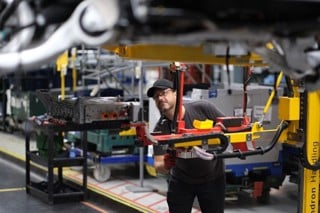The BVRLA has welcomed a report outlining the role that car clubs and car sharing can play in achieving London’s urban transport objectives of reducing car use and congestion and improving air quality.
The report – Car Sharing in London: Vision 2020 – was commissioned by BVRLA member Zipcar and carried out by research specialists Frost & Sullivan.
BVRLA chief executive Gerry Keaney said: “The report highlights how car clubs and car-sharing can help the government and local authorities to tackle urban transport challenges.”
Frost and Sullivan’s report looks at round-trip car club use in the capital, and the potential for one-way use in the future. It says that car clubs could become a ‘mainstream’ part of London’s transport system by 2020, with around 800,000 members.
The report estimates that growth of the established round-trip car sharing business model would result in 79,000 fewer cars on the road, a 4% reduction in CO2 emissions, a 4.6% fall in NOx emissions, and annual savings of £238 million for Londoners, as well as a £120million annual increase in GDP and productivity from reduced congestion on London’s roads.
“Car club users will be giving up their old, polluting cars and getting access to newer, more fuel-efficient vehicles,” said Keaney.
“We hope to work with Zipcar, Transport for London, the Department for Transport, London Councils and other car clubs to ensure that the sector reaches its full potential in London, as well as the rest of the UK.”


















Login to comment
Comments
No comments have been made yet.